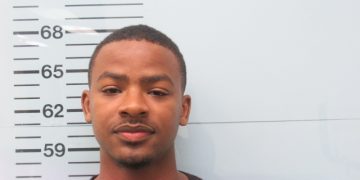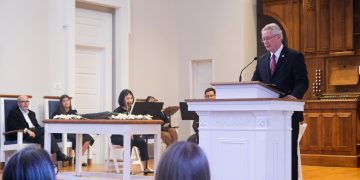When I unlock my phone, I’m stunned by otherworldly atrocities in the Middle East: Chinese and American warships being deployed to the region, Iran burning American flags and an ongoing war between Russia and Ukraine. Often, it feels like the fog of war is coming directly through my phone screen, and it seems like everyone has a take on every issue that is happening around us. Times are tense as living generations are witnessing violence and injustice just about everywhere they look online.
The latest and most contentious war between Israel and Hamas has taken over headlines.
This conflict has been ongoing for generations; however, since the late 1800s when Jews began moving back to the area now known as Israel, and was worsened when at the end of World War II the United Nations decided to divide Great Britain’s Palestinian territory into Jewish and Arab states. Since then, the two countries, with multiple Arab countries on the side of Palestine, fought for control of the area, often invoking revenge tactics on each other as the violence becomes more and more severe. Today, however, there are no countries directly fighting Israel.
What we are witnessing now is Hamas, a widely recognized terrorist organization, attempting to regain the territory they believe is rightfully theirs by any means possible. For Hamas, “any means possible” has resulted in terroristic acts that have unfolded a bloody, brutal and inhumane chain of events.
These events have been gruesome, and the rest of the world is able to witness the carnage by simply logging onto X, formerly known as Twitter, or any other social media platform. Nothing could have prepared me for images of wounded children or videos of indiscriminate explosions.
With current generations relying on social media sites as news sources, it is critical to think and research before vomiting a “hot take” on the topic of this conflict. If one has expertise or first-hand knowledge, that’s when their take will have relevance. The surface level commentary that is often wrong surrounding these circumstances is unnecessary and proves to only be harmful rhetoric.
Here in Oxford, we are 6,606 miles away from the Gaza Strip and much of the information available is misleading.
It is difficult to take a stance when traditional media sources in America are even admitting that they have unintentionally produced false information on the subject at times. For example, the New York Times tweeted on Oct. 23 an editor’s note clarifying that part of an article, “relied too heavily on Hamas claims” regarding the bombing of a hospital in Gaza.
Looking further into the dangers of media currently is the misinformation that is being fed into X. According to Variety Magazine, 74% of the most viral posts about the Israel-Hamas War contain misinformation of some sort.
It is more important now than ever that we as college students and Americans understand that it is not necessary to react to the first thing that we see online. Viral online culture has spoiled the attitude that taught us to listen and gain understanding of a conflict as deep in revenge, religion, and politics as this one is.
It is also crucial that journalistic ethics are held to a higher standard in today’s media landscape. The rising tensions all around the globe have led the State Department to issue a warning to anyone traveling abroad. These tensions could have consequences down the line especially when there are mobs of the misinformed taking to the streets before the dust has settled.
It is important during this time to have faith. Have faith that level heads will prevail and achieve peaceful resolutions to the myriad problems we face today. The releasing of hostages and collected reactions from officials around the world is something to find light in.
While it is important to be grateful for the blessings those in Oxford have currently, it is also important to take a step back, gather some sense and not take everything on social media at face value.
All these events at once can be scary to think of, but faith that the light will shine through the darkness is essential during these critical times.
David Ramsey is a junior public policy leadership major from Madison, Miss.


























